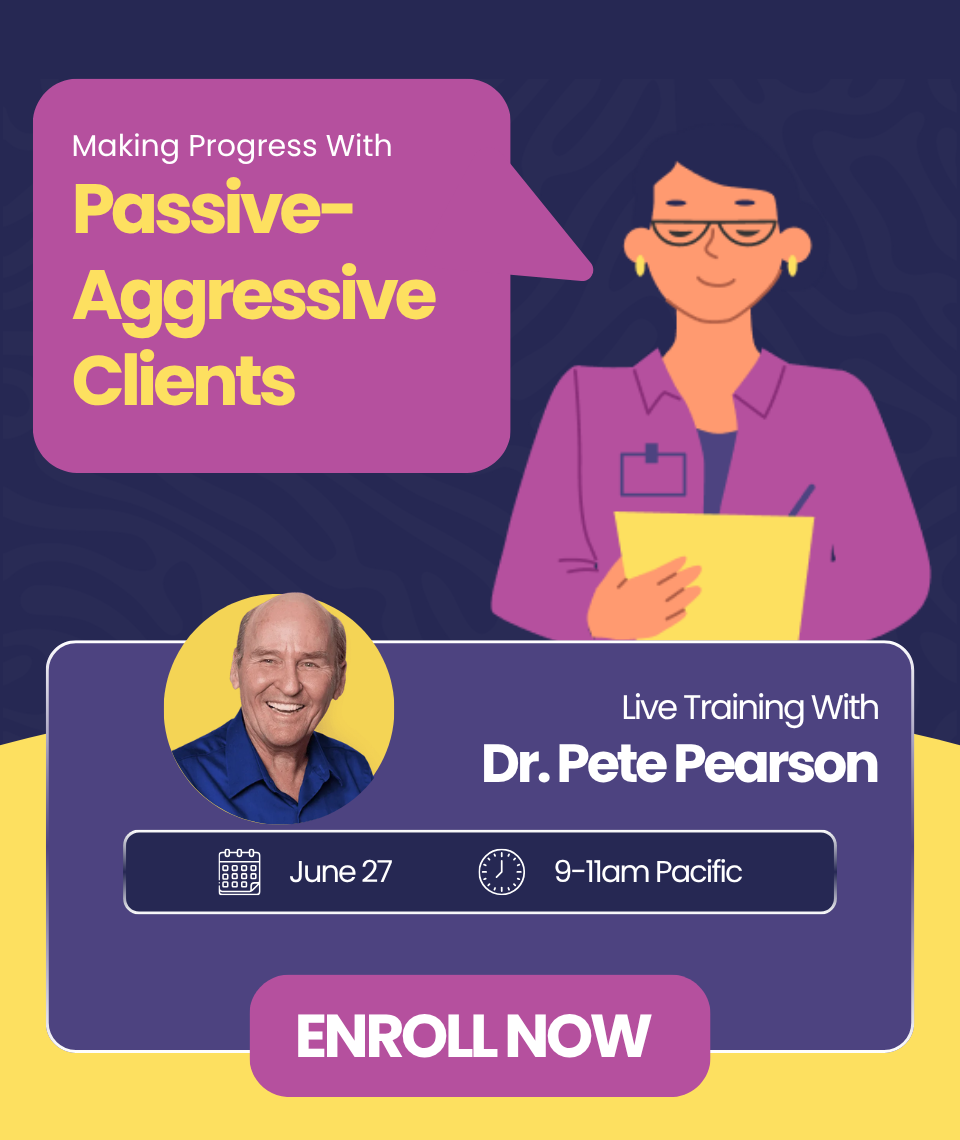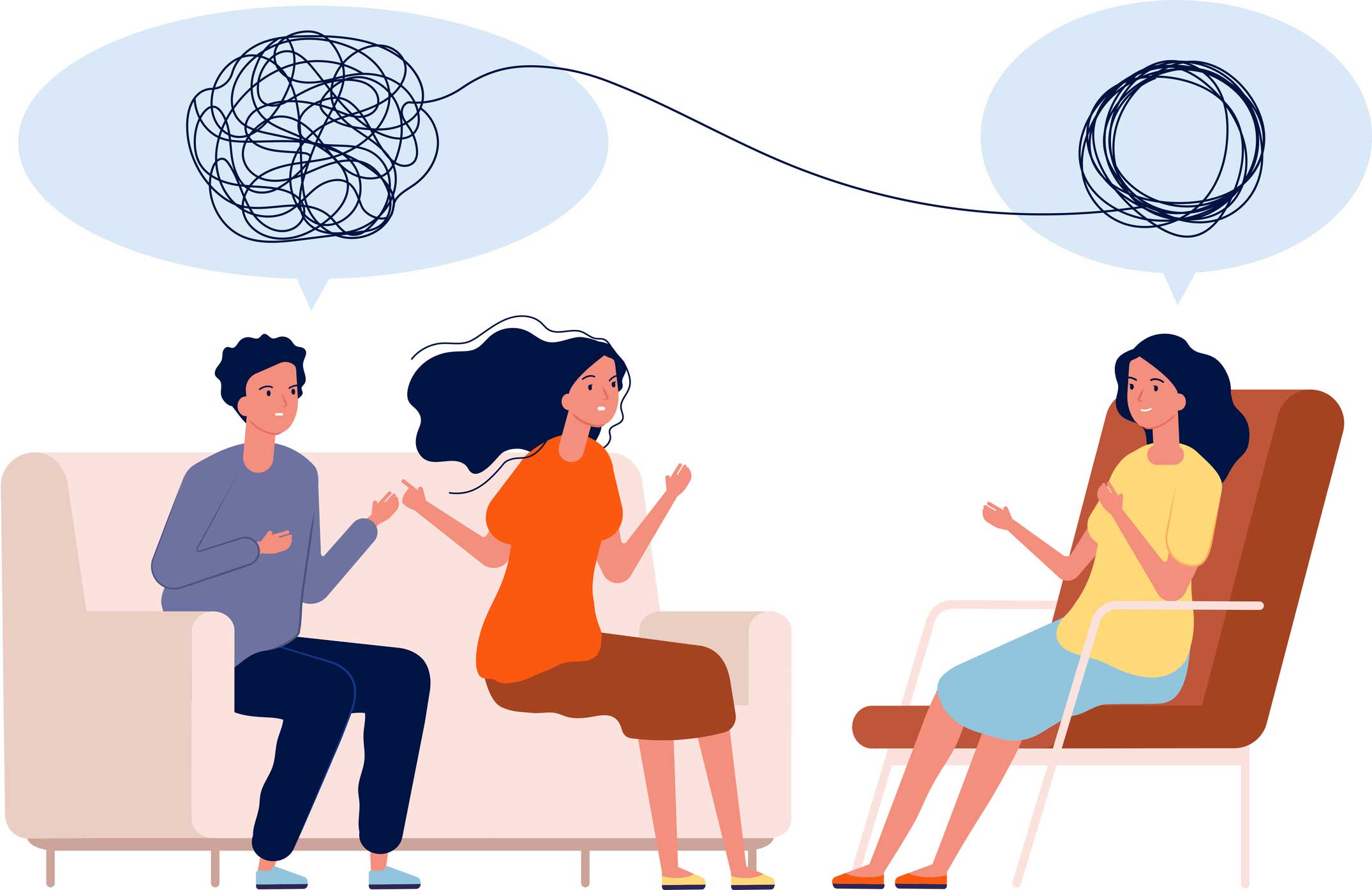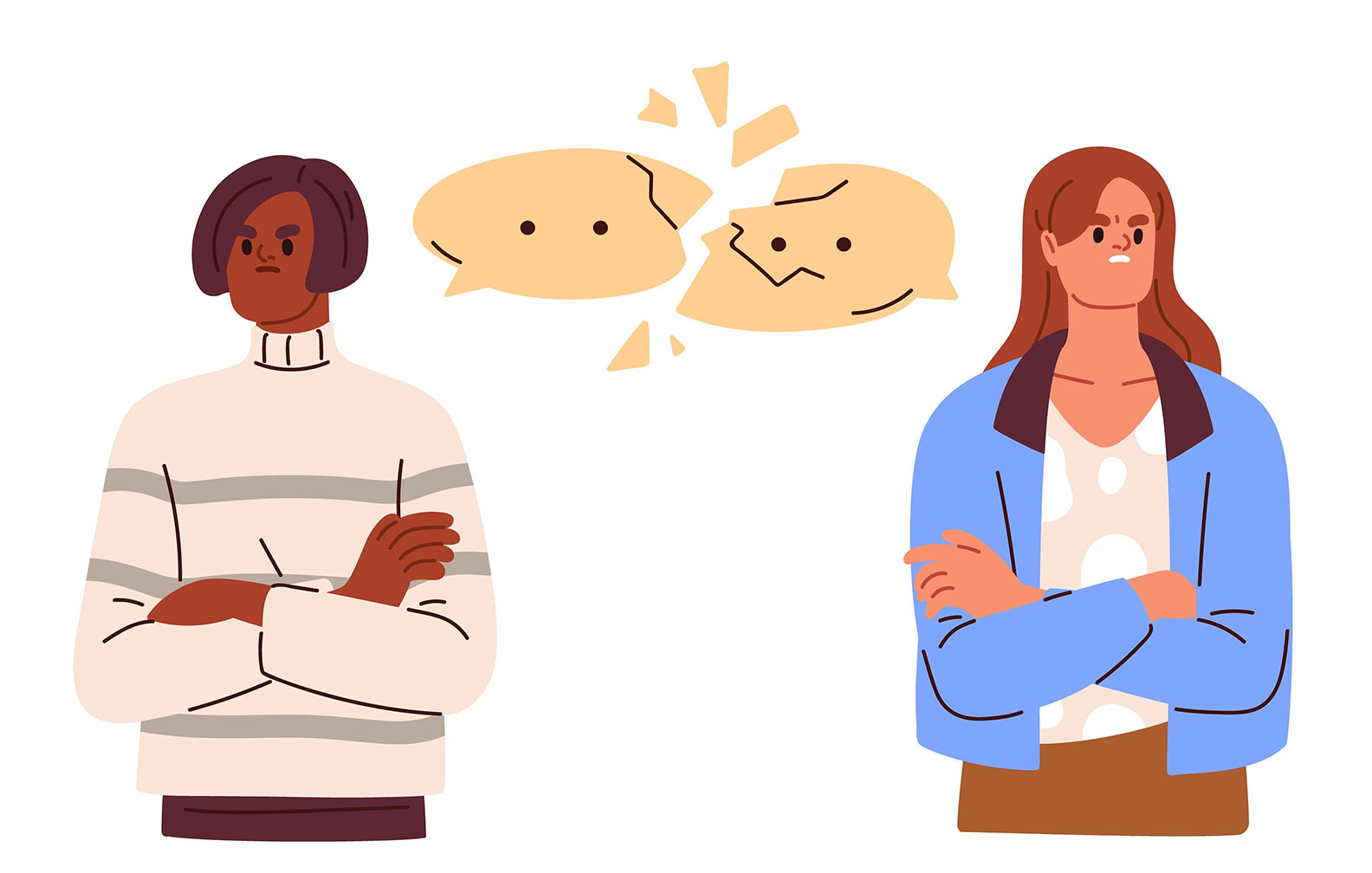My advanced online training group recently has been focusing on working with addiction issues in couples therapy. For this blog, I thought I’d share some important insights from Sue Diamond, a couples therapist who specializes in treating addiction.
Many couples come to therapy with addiction as an undisclosed issue. In fact, the addict has had many years, maybe even decades, to build up defenses that unconsciously deflect their awareness and prevent them from facing their addiction.
Also, when a couple decides to come for therapy, confronting an addiction may not be their top priority. They may be more concerned with their hostility or broken agreements.
Acknowledging the addiction is a challenge because owning it is the first step in stopping, which may not be desirable at all to your client. The primitive brain of the addict says “No, don’t stop. You can’t stop. We’ll defend your addiction no matter what.”
And the partner of the addict may be in denial as well. In an individual session just last week a husband whose wife had recently stopped drinking said to me, “I am not sure which is worse, our fights or me having to drink alone when we go out socializing.” His comment shows a major lack of commitment to the importance of his wife’s sobriety. He’s more concerned about drinking alone in social situations – than the significance of his wife’s difficult journey to being sober.
How to ensure the addiction issues are brought up in your couples sessions.
Questions about addiction should ideally be included in your initial intake or assessment session. You can ask:
- Are there any addiction issues?
- How much do you each drink?
- Do you use/abuse recreational drugs or overuse prescription medication?
When you get vague responses, spend some extra time assessing. Other useful questions are:
- Can you give me an idea how many drinks you have in a normal week?
- Is this typical or are there times when you drink more than this?
- Are there any other drugs you use frequently?
- Are there other ways you behave compulsively? For example, do you use the Internet compulsively, have you ever gambled?
- Would your partner report your drug and alcohol use the same way you just reported it to me?
Be very aware of the nonverbal cues when you ask these questions. Since both partners are present, the discrepancies will often surface via nonverbal reactions. You can then highlight the discrepancy.
Also, you can take a family history, do a life script questionnaire or a genogram. Discovering a history of addiction in either partner’s family of origin is another clue to potentially uncover addiction issues in the couple seeing you.
Some other important issues to keep in mind:
- Addicts typically under report their use by about half.
- When a couple reports an unusually intense fight, you can ask “Were you drinking before this fight occurred?” Excessive drinking often contributes to volatile couples’ fights.
Keep your eyes open for untreated addiction. Eventually it will corrode the couple’s relationship and also undermine the couples therapy because the alcoholic/addict’s primary attachment relationship is to their drug of choice, rather than to their partner. If untreated, addiction will interfere with emotional growth, which is the focus of your work with these clients.
Even if the abusing partner does not want to address the addiction, you can refuse to collude with their denial by periodically bringing it up in your sessions. You can be unambiguous in your belief that the addiction is a problem. By speaking the truth about it, you give them both the best chance to meet their therapeutic goals.
Ellyn wrote this blog post with Sue Diamond, Founder and Clinical Director of The Goodlife Therapy Centre in Vancouver, British Columbia. Sue and her team specialize in treating addiction and relationship trauma. She has trained at the Couples Institute for over 15 years and provides ongoing training to therapists in Canada in the Developmental Model.
For more information on treating couples with issues of addiction, please see “The Sober Truth: Effective Couples Therapy with Addicted Partners,” a 90-minute webinar with Sue that includes transcript, handouts, and PowerPoint slides. Or click here to visit Sue’s website and sign up for her newsletter.


 We respect your privacy.
We respect your privacy.




My God,serial affairs and addictions.
This is my husband and its frightening to know there are other people like myself,having their lives torn apart by these issues.
I must agree,every time this has happened in our relationship thete were alcohol and drugs first,then the mistakes.
Addiction can be the silent third party in the room when working with a couple. Thank you for the ideas to assess for and treat addiction in couples therapy.
Thank you for sharing tips for working with couples regarding addiction. Here’s my article, “Homeostasis: A Key Concept in Working With Alcoholic Family Systems”:
https://marcianaomiberger.com/wp-content/uploads/2010/10/Homeostatis-A-Key-Concept-in-Working-With-Alcoholic-Families.pdf
This was brilliant Ellyn. Great suggestions and markers to look for as we work with couples and individuals who may be impacted by their addiction and not objective enough to report it or report it accurately
This is a great reminder to me to think about issues surrounding addiction when working with couples. I have not asked about addiction however having read this it’s going to come into my sessions when the opportunity arises. I may cover it in the initial questionnaire though I haven’t done so up until now. However may be dealing with it in the sessions may bring about a truer reply.